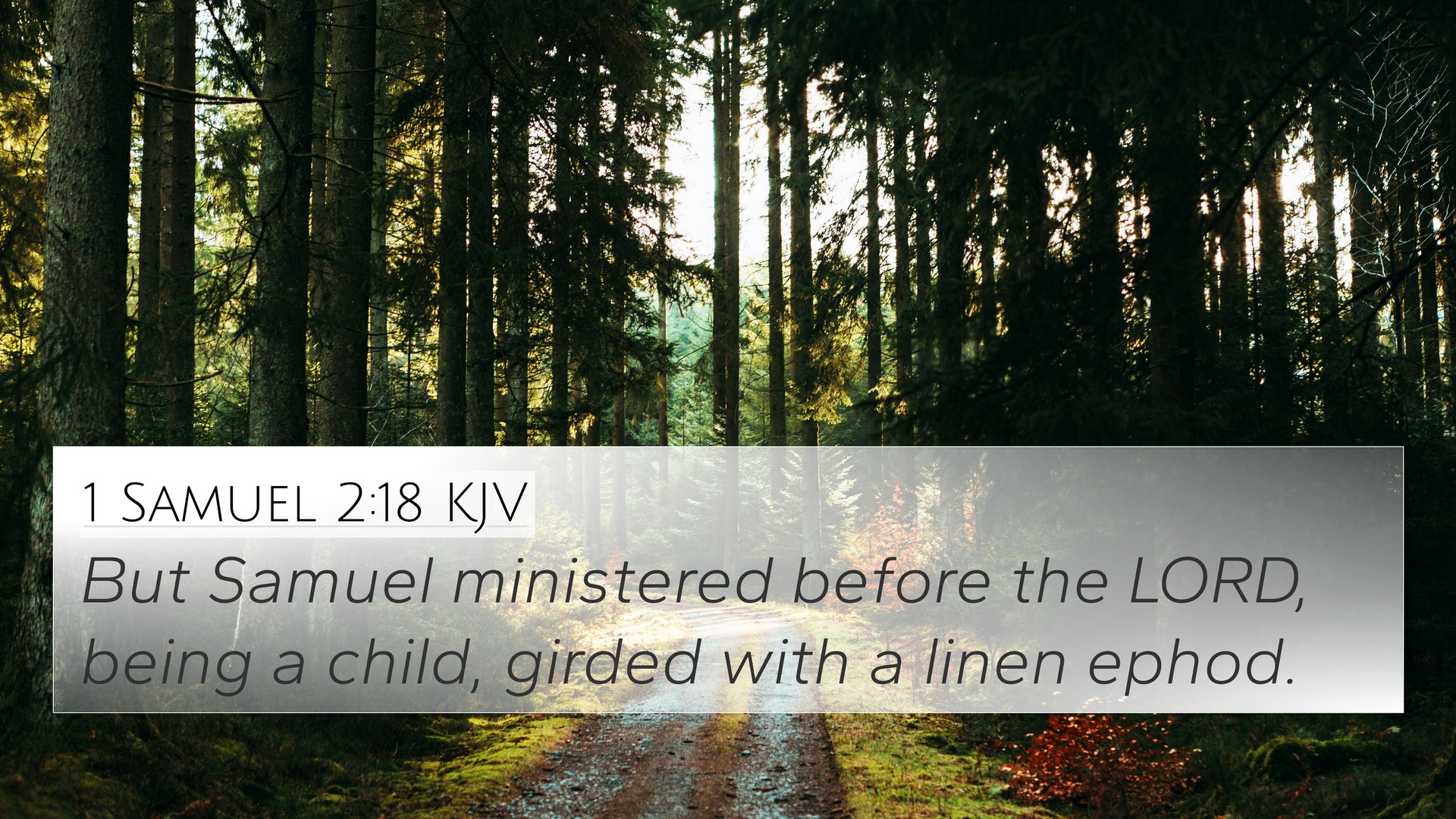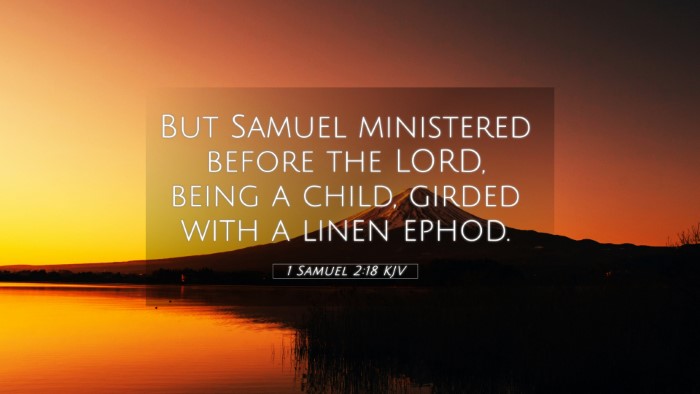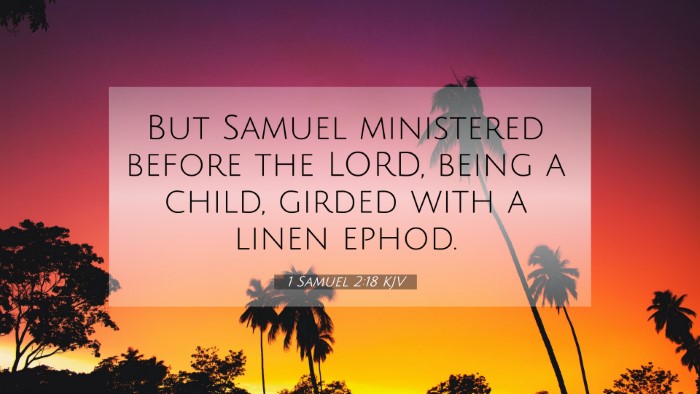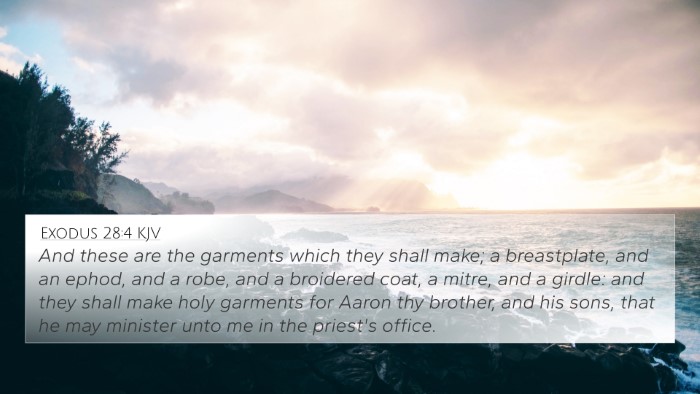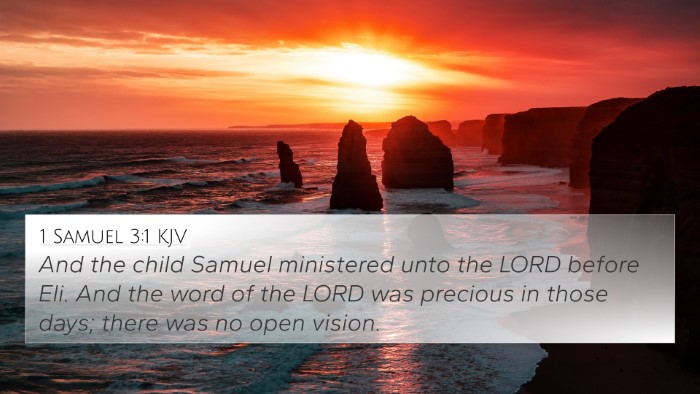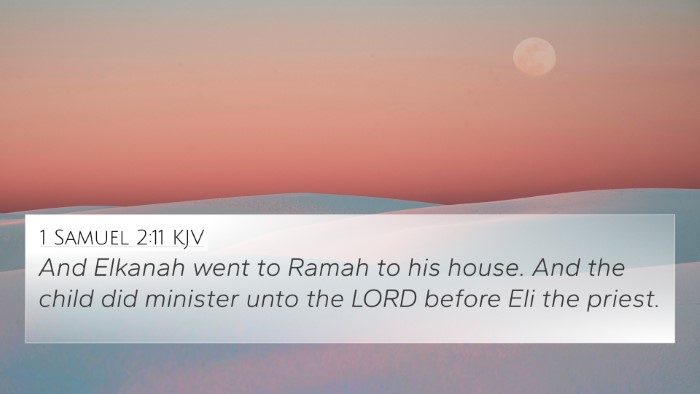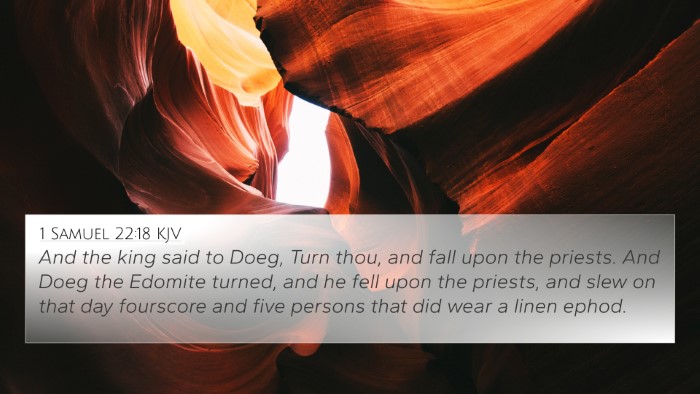Understanding 1 Samuel 2:18
Verse: "But Samuel ministered before the LORD, being a child, girded with a linen ephod." - 1 Samuel 2:18 (KJV)
This verse highlights the early dedication of Samuel to the service of the Lord, depicting him as a young child diligently fulfilling his priestly duties. In examining this passage, it's essential to draw from various public domain commentaries to gain a comprehensive understanding.
Commentary Insights
-
Matthew Henry:
Henry reflects on Samuel's early commitment to the Lord, noting that even as a child, he took part in the service of God. This suggests the importance of nurturing faith from a young age. His use of the "linen ephod" symbolizes purity and the calling of God on his life, indicating that service to God can begin early in life.
-
Albert Barnes:
Barnes emphasizes the significance of Samuel's ministry, pointing out that his role as a minister is atypical for a child. This early beginning allowed Samuel to grow spiritually and practically within the community, suggesting that God prepares leaders from a young age through faithful service.
-
Adam Clarke:
Clarke provides insights into the linen ephod that Samuel wore, explaining its association with priestly duties and the seriousness of the calling placed upon Samuel. This gear signifies his set-apart status, highlighting the seriousness of his role and the expectations from God upon this young prophet.
Thematic Connections
The verse intricately weaves into broader biblical themes, including:
- Service to God: Samuel serves as an archetype of childlike faith and service, paralleling Jesus' teachings on serving God from a young age (Matthew 19:14).
- The Role of Prophets: Samuel begins his prophetic journey here, which connects to later instances in the Bible that highlight prophetic calls and their significance (Jeremiah 1:5).
- God’s Preparations: The idea that God prepares His servants early can be linked to Ephesians 2:10, where believers are described as created for good works.
Cross-References
In exploring 1 Samuel 2:18, we find several key cross-references that enhance understanding:
- Exodus 28:4: Reference to the ephods worn by priests reinforces the significance of Samuel's attire.
- 1 Samuel 3:1: Samuel continues in ministry, demonstrating God's ongoing work through him.
- 1 Samuel 7:15: Samuel's service becomes a pattern for his prophetic role later in life.
- 1 Peter 2:9: Discusses believers as a royal priesthood, connecting New Testament themes of service.
- Luke 2:40: Jesus' growth and stature as a child echoes Samuel's emerging role in service to God.
- Jeremiah 1:5: The divine call to a prophet from a young age aligns with Samuel's early service.
- 1 Timothy 4:12: Encourages desiring youth to not be deterred in faith and service, akin to Samuel’s example.
Inter-Biblical Reflections
The connections between Bible verses often reveal the continuity of God's message through generations. Samuel’s early start is mirrored in other scripture that emphasizes youth in ministry, such as:
- Psalm 119:9: "How can a young man keep his way pure? By living according to your word." A call for righteousness from early on.
- 2 Timothy 3:15: A commendation for the sacred writings learned from infancy, underscoring the importance of early spiritual education.
Conclusion
In studying 1 Samuel 2:18, it becomes clear that Samuel's early life sets a precedent for youthful involvement in God’s service. The verse encapsulates themes of faithfulness, preparation, and the divine calling, highlighted through cross-references that enrich our understanding of scripture as a cohesive body of work. By employing tools for Bible cross-referencing, believers can study these connections deeply, understanding the vast tapestry of God's word.
Engagement with this verse and its related scriptures invites readers to consider how they may serve God in their youth, fostering growth in faith and obedience, paralleling the journey of Samuel.
